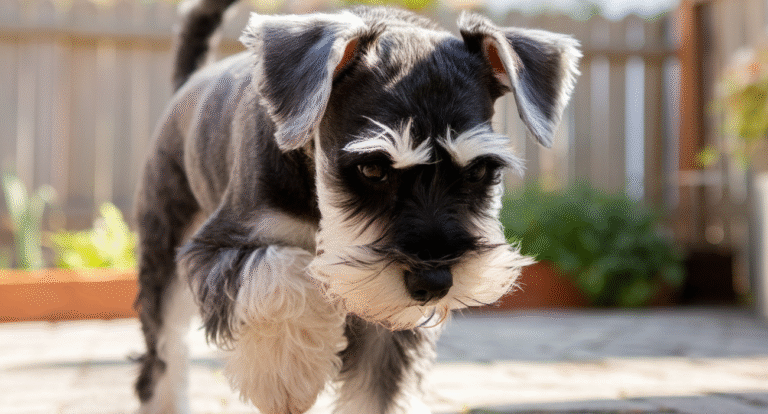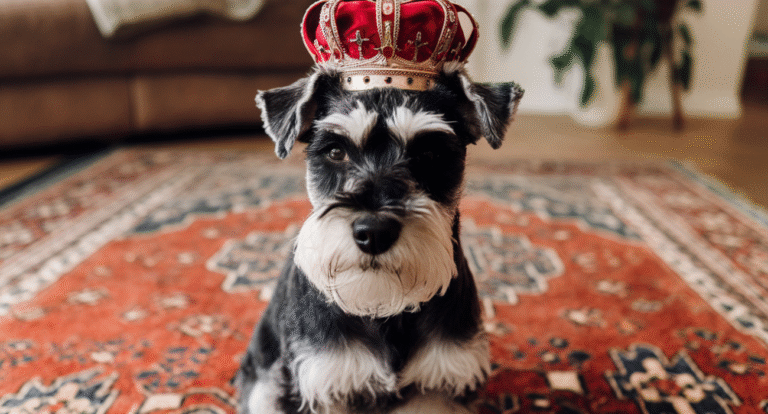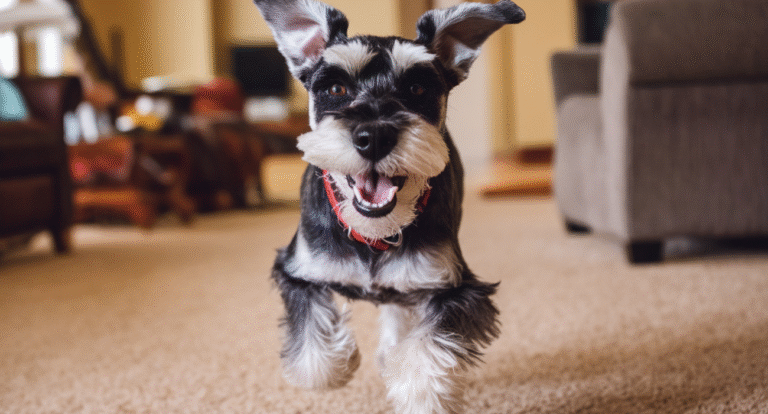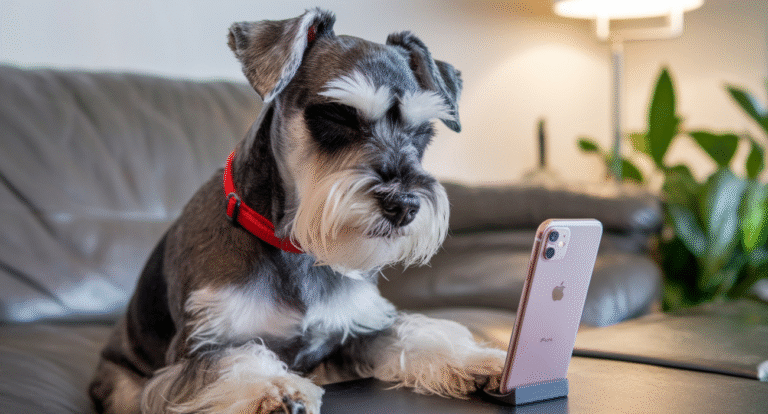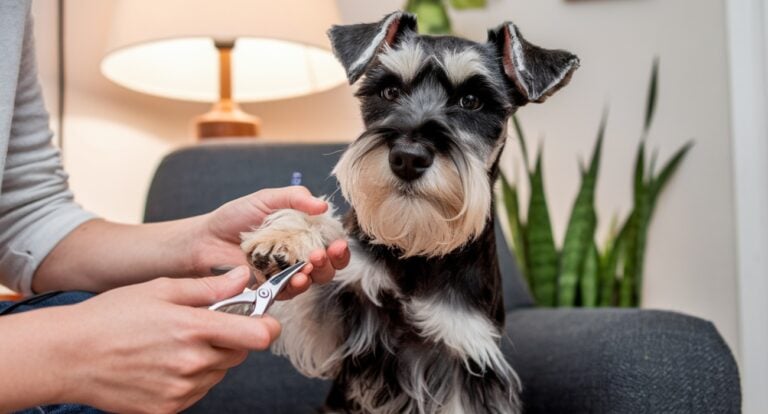Is your pup’s dinner bowl helping or hurting their health? Discover the must-know food rules every Schnauzer parent should follow.
Schnauzers may be small in size but they have a big reputation for being full of personality, energy, and of course, a touch of stubbornness. Their famous beards may make them look like old philosophers, but when it comes to food, they are anything but wise on their own. That is where you step in. While Schnauzers do not need a completely exotic diet, their breed-specific quirks mean a thoughtful approach to mealtime can make all the difference in their health and happiness.
These bearded beauties come with their own unique set of nutritional needs that can leave even experienced dog owners scratching their heads. Unlike their larger canine cousins, Schnauzers have some very specific dietary requirements that stem from their genetics, metabolism, and those adorable but sometimes problematic breed characteristics we all know and love.
The good news? You don’t need a degree in canine nutrition to keep your Schnauzer happy and healthy. Armed with the right knowledge and a little planning, you can transform mealtime from a daily guessing game into a well-orchestrated symphony of tail wags and satisfied sighs.
So what makes Schnauzer nutrition special? Let’s dig into the seven golden rules that every Schnauzer parent should master.
The Seven Golden Rules of Schnauzer Nutrition
1. Keep Fat Levels in Check
Here’s where things get serious, folks. Schnauzers are notorious for their susceptibility to pancreatitis, a painful and potentially dangerous condition that can turn your happy pup into a very sick dog faster than you can say “bacon grease.” This breed-specific vulnerability means that fatty foods aren’t just unhealthy for your Schnauzer, they’re downright dangerous.
Remember: That innocent-looking piece of bacon or slice of pizza could land your Schnauzer in the emergency vet’s office with a hefty bill and days of recovery ahead.
Skip the fatty table scraps entirely, no matter how those expressive eyes plead with you. When shopping for dog food, aim for options with moderate fat content (typically around 8-15% for most adult Schnauzers). And yes, this means keeping fried foods, greasy leftovers, and rich treats completely off the menu.
2. Choose High-Quality Protein
Think of protein as your Schnauzer’s personal trainer and energy coach rolled into one. These active little dynamos need high-quality protein to fuel their endless enthusiasm and maintain those compact, muscular bodies that make them such excellent watchdogs.
The key word here is quality. Look for dog foods that list real meat as the first ingredient, chicken, turkey, fish, or lamb are all excellent choices. Avoid foods loaded with mysterious meat meals, by-products, or fillers that sound like they belong in a chemistry lab rather than a dog bowl.
3. Control Portion Sizes
Let’s be honest: Schnauzers are master manipulators when it comes to food. Those soulful eyes, the strategic positioning near the kitchen, the perfectly timed whimper, they’ve got the begging game down to an art form. But here’s the tough love truth: extra weight on a small frame can spell big trouble.
Obesity in Schnauzers can lead to joint problems, diabetes, and a whole host of other health issues that no amount of cuteness can fix. Use an actual measuring cup for their meals, resist the urge to free-feed throughout the day, and remember that “just one more bite” can quickly become a dangerous habit.
| Schnauzer Size | Daily Food Amount | Feeding Frequency |
|---|---|---|
| Miniature (11-20 lbs) | 1/2 to 1 cup | 2 meals per day |
| Standard (30-45 lbs) | 1 to 2 cups | 2 meals per day |
| Giant (55-85 lbs) | 2 to 4 cups | 2 meals per day |
Note: These are general guidelines. Always consult your veterinarian for personalized recommendations based on your dog’s age, activity level, and health status.
4. Watch Out for Allergies
Many Schnauzers come equipped with sensitive stomachs and skin that seems to react to everything from dust mites to Tuesday. Food allergies and sensitivities are particularly common in this breed, turning mealtime into a potential minefield of itchy skin, digestive upset, and general discomfort.
Common troublemakers include grains (especially wheat and corn), dairy products, and certain proteins like beef or chicken. If you notice your Schnauzer engaging in excessive scratching, paw licking that sounds like a tiny washing machine, or experiencing frequent digestive issues, it’s time for a heart-to-heart with your veterinarian about elimination diets or hypoallergenic food options.
5. Hydration Is Key
Those busy little bodies burn through energy like tiny, four-legged race cars, which means proper hydration isn’t just important, it’s absolutely critical. Clean, fresh water should be available 24/7, no exceptions.
Some Schnauzers can be surprisingly picky about their water sources (because apparently even hydration needs to meet their sophisticated standards). If your furry friend seems reluctant to drink, consider investing in a pet water fountain. The moving water often encourages more frequent sipping and can turn hydration from a chore into entertainment.
6. Smart Treating
Treats are the currency of dog training and the foundation of the human-Schnauzer bond. But like any currency, moderation is key. Too many treats can quickly derail even the most carefully planned diet and send your Schnauzer’s weight soaring into dangerous territory.
Choose low-fat, nutrient-rich treats that actually contribute something positive to your dog’s diet. Small pieces of carrot, apple slices (seeds removed!), or specially formulated low-fat training treats work wonderfully. The golden rule? Treats should never exceed 10% of your Schnauzer’s daily caloric intake.
Pro tip: Your Schnauzer doesn’t know the difference between a store-bought treat and a piece of their regular kibble used as a training reward. Sometimes the simplest solutions are the smartest ones.
7. Stick to a Feeding Routine
Schnauzers thrive on predictability, and nowhere is this more important than with their feeding schedule. Consistency isn’t just comforting, it’s a powerful tool for regulating digestion, preventing behavioral issues, and maintaining overall health.
Most adult Schnauzers do best with two balanced meals per day, spaced about 8-12 hours apart. Puppies, with their faster metabolisms and smaller stomachs, typically need three to four smaller meals throughout the day. Stick to the same feeding times daily, and watch as begging behavior diminishes and digestive regularity improves.
The magic of routine: When your Schnauzer knows exactly when food is coming, they’re less likely to spend all day plotting elaborate schemes to convince you it’s dinner time.
Special Considerations for Different Life Stages
- Puppies need more frequent meals and higher calorie density to fuel their rapid growth.
- Senior Schnauzers may require easily digestible foods and potentially modified protein levels depending on kidney function.
- Pregnant or nursing females have dramatically increased nutritional needs that require veterinary guidance.
The bottom line? Your Schnauzer’s nutritional needs will evolve throughout their life, and staying flexible while maintaining these core principles will serve you both well.
Keeping Your Bearded Buddy Thriving
Feeding a Schnauzer successfully isn’t about perfection, it’s about understanding their unique needs and making informed choices that support their health and happiness. These seven golden rules provide the framework, but remember that every dog is an individual with their own preferences, sensitivities, and quirks.
When in doubt, your veterinarian is your best ally in navigating the sometimes confusing world of canine nutrition. With the right approach, you can keep your Schnauzer’s distinctive beard wagging happily while ensuring their body stays as healthy and energetic as their irrepressible spirit.


